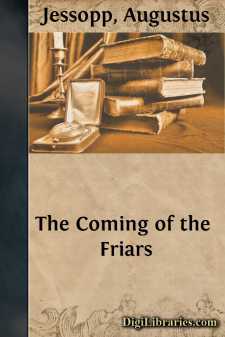Categories
- Antiques & Collectibles 13
- Architecture 36
- Art 48
- Bibles 22
- Biography & Autobiography 813
- Body, Mind & Spirit 142
- Business & Economics 28
- Children's Books 13
- Children's Fiction 10
- Computers 4
- Cooking 94
- Crafts & Hobbies 4
- Drama 346
- Education 46
- Family & Relationships 57
- Fiction 11828
- Games 19
- Gardening 17
- Health & Fitness 34
- History 1377
- House & Home 1
- Humor 147
- Juvenile Fiction 1873
- Juvenile Nonfiction 202
- Language Arts & Disciplines 88
- Law 16
- Literary Collections 686
- Literary Criticism 179
- Mathematics 13
- Medical 41
- Music 40
- Nature 179
- Non-Classifiable 1768
- Performing Arts 7
- Periodicals 1453
- Philosophy 64
- Photography 2
- Poetry 896
- Political Science 203
- Psychology 42
- Reference 154
- Religion 513
- Science 126
- Self-Help 84
- Social Science 81
- Sports & Recreation 34
- Study Aids 3
- Technology & Engineering 59
- Transportation 23
- Travel 463
- True Crime 29
Sort by:
One of the gravest editorial problems faced by the editors of AMAZING STORIES when they launched its first issue, dated April, 1926, was the problem of finding or developing authors who could write the type of story they needed. As a stop-gap, the first two issues of AMAZING STORIES were devoted entirely to reprints. But reprints were to constitute a declining portion of the publication's contents...
more...
by:
Augustus Jessopp
THE COMING OF THE FRIARS. Sweet St. Francis of Assisi, would that he were here again!—LordTennyson. When King Richard of England, whom men call the Lion-hearted, was wasting his time at Messina, after his boisterous fashion, in the winter of 1190, he heard of the fame of Abbot Joachim, and sent for that renowned personage, that he might hear from his own lips the words of prophecy and their...
more...
by:
John Wesley Judd
CHAPTER I INTRODUCTORY When the history of the Nineteenth Century—'the Wonderful Century,' as it has, not inaptly, been called—comes to be written, a foremost place must be assigned to that great movement by which evolution has become the dominant factor in scientific progress, while its influence has been felt in every sphere of human speculation and effort. At the beginning of the...
more...
by:
Standish O'Grady
In this age we read so much that we lay too great a burden on the imagination. It is unable to create images which are the spiritual equivalent of the words on the printed page, and reading becomes for too many an occupation of the eye rather than of the mind. How rarely—out of the multitude of volumes a man reads in his lifetime—can he remember where or when he read any particular book, or with...
more...
by:
August Niemann
AUTHOR'S PREFACE I recall to mind a British colonel, who said to me in Calcutta: "This is the third time that I have been sent to India. Twenty-five years ago, as lieutenant, and then the Russians were some fifteen hundred miles from the Indian frontier; then, six years since, as captain, and the Russians were then only five hundred miles away. A year ago I came here as lieutenant-colonel, and...
more...
CHAPTER I. In a pleasant country where green meadows lay stretched by the side of a broad river whose banks were lined with the pollard-willow and tall poplar, there once dwelt a family of Weasels, known, from their place of residence, as the Weasels of Holm-wood. Holm-wood was a little island covered with underwood, rushes, and wild flowers. A few aged trees stood by its edge, bathing their long arms...
more...
by:
John Leech
The Author of this little work cannot allow a second edition of it to go forth to the world, unaccompanied by a few words of apology, he being desirous of imitating, in every respect, the example of distinguished writers. He begs that so much as the consciousness of being answerable for a great deal of nonsense, usually prompts a man to say, in the hope of disarming criticism, may be considered to have...
more...
ACT I. I. 1 Scene I. Enter Duke, , Gaoler, , and other Attendants. Æge. Proceed, , to procure my fall, And by the doom of death end woes and all. Duke. Merchant of Syracusa, plead no more; I am not partial to infringe our laws: The enmity and discord which of late 5 Sprung from the rancorous outrage of your duke To merchants, our well-dealing countrymen, Who, wanting guilders to redeem their lives,...
more...
by:
William Congreve
For one may apprehend the whole truth to be somewhat thus. Satiric comedy, or comedy of manners, is the art of making ludicrous in dramatic form some phase of life. The writers of our old comedy thought that certain vices—gambling, adultery, and the like—formed a phase of life which for divers reasons, essential and accidental, lent itself best to their purpose. They may, or may not, have...
more...
by:
George Colman
PROLOGUE. The Bard, when first he gave his mind to write, Thought it his only business, that his Plays Should please the people: but it now falls out, He finds, much otherwise, and wastes, perforce, His time in writing Prologues; not to tell The argument, but to refute the slanders Broach’d by the malice of an older Bard. And mark what vices he is charg’d withal! Menander wrote the Andrian and...
more...










![The Comedies of William Congreve
Volume 1 [of 2]](https://digilibraries-com.s3.eu-central-1.amazonaws.com/covers/8dc1222e-f879-4d40-afe0-4a0d866881c1.jpg)
